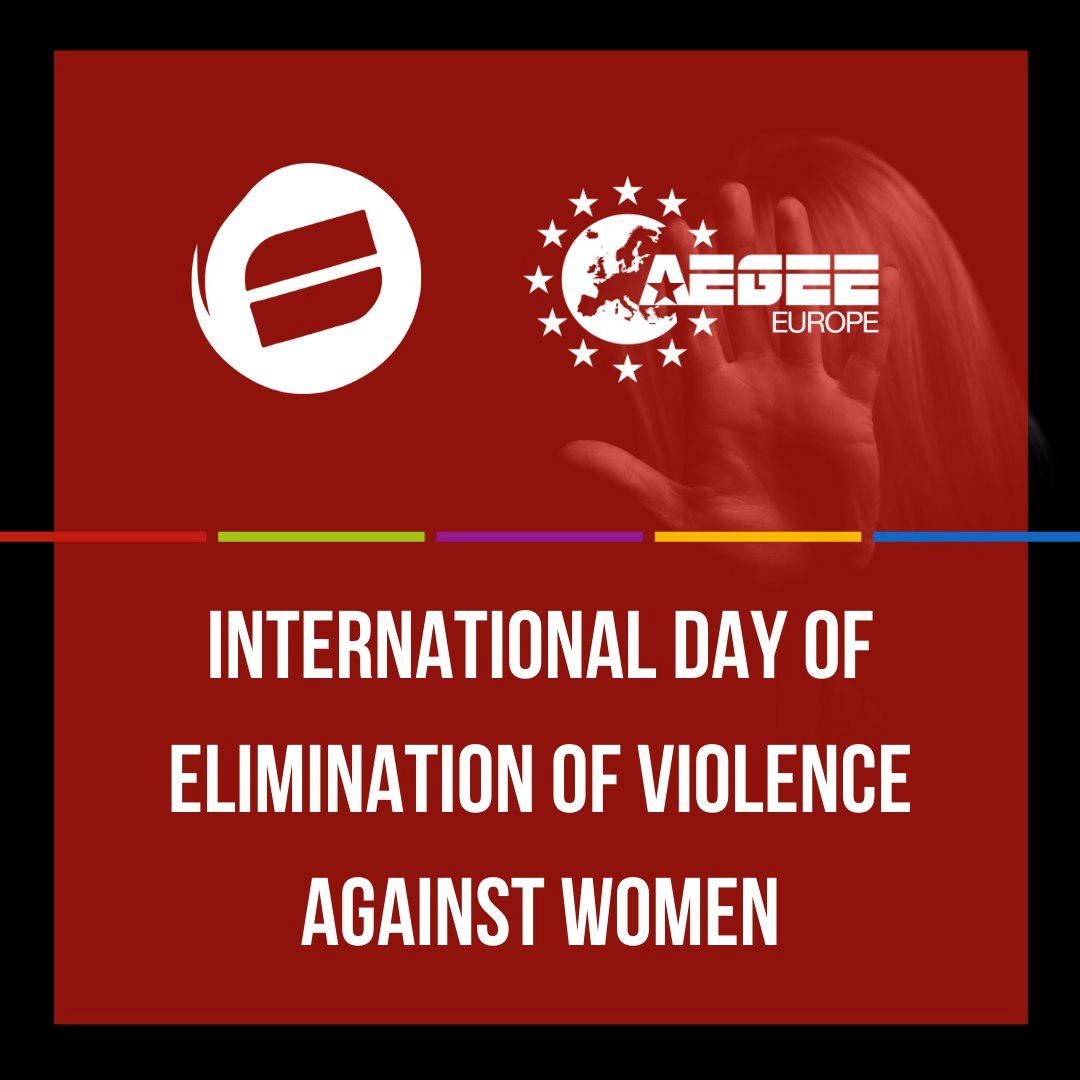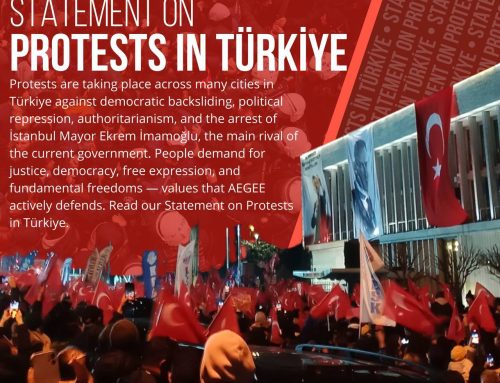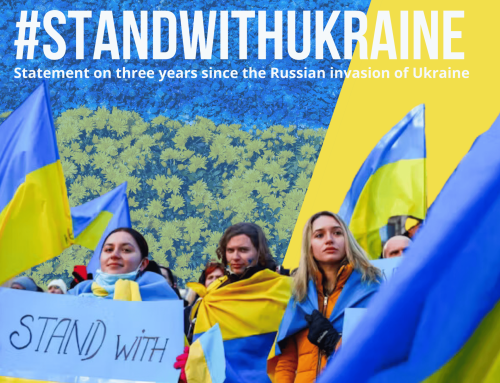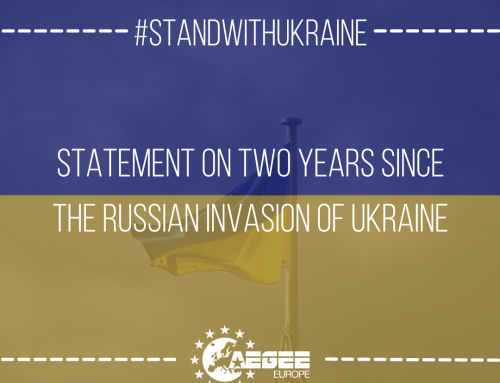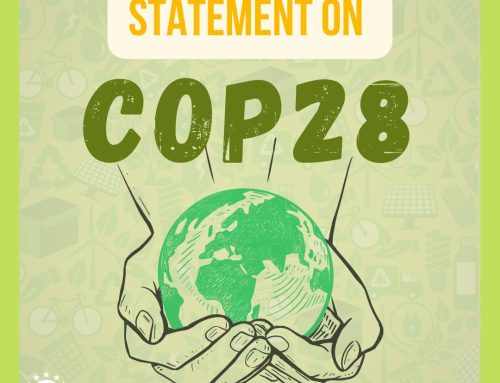Violence against women is an everyday reality for a very large part of the world population across the globe as well as in Europe. 33% of women in the EU have endured physical and/or sexual violence since age 15, 43% have suffered psychological violence by a current or former partner, 55% have experienced sexual harassment, and in 2016 intimate partners or family members intentionally killed more than one woman every day. Indeed, violence against women is recognised as one of the most widespread and endemic forms of human rights violation.
The United Nations has designated the 25th of November as the International Day for the Elimination of Violence Against Women, in order to raise awareness and mobilise society in favor of women’s rights and for a world free from gender-based violence. The 1993 UN Declaration on the Elimination of Violence Against Women defines violence against women as “any act of gender-based violence that results in, or is likely to result in, physical, sexual or psychological harm or suffering to women, including threats of such acts, coercion or arbitrary deprivation of liberty, whether occurring in public or in private life.”
Gender-based violence can take many forms, from partner violence and sexual abuse, child marriage and trafficking, to sexual harassment and cyber-harassment. Violence against women is also one of the most underreported crimes, because of impunity, stigma, silence and shame around it. In 2012 only, 13.4% of women in the EU have experienced physical and/or sexual violence and have not told anyone.
Even though every woman can be a victim of gender-based violence, some social groups are more at risk than others. Migrant women, especially undocumented migrants, women with disabilities, young and elderly women, queer women and trans women all experience higher rates of gender-based violence and face even more vulnerabilities and challenges. For this reason, any policy response to violence against women needs to take into account the diversity of women in Europe, policy and decision makers should listen to survivors and put their experience and needs at the forefront.
Gender-based violence is systematically used to keep women in their place, to limit their freedom, to remind them of their vulnerability, to strengthen control over them. Gender-based violence has an impact on every woman, as every act of psychological or physical violence reinforces and entrenches the structural discrimination and oppression that women face in a patriarchal society. Therefore, gender equality cannot be achieved as long as women are still subject to violence just because they are women.
As an organisation believing in Europe built on the values of diversity and equity, AEGEE stands against any forms of violence against women and demands all European states and the EU to take a clear stand for the elimination of gender-based violence.
The Council of Europe Convention on preventing and combating violence against women and domestic violence (the Istanbul Convention) is the most comprehensive international instrument on gender-based violence. This document was ratified by 34 States, and although all 28 Member States of the EU have signed the convention, Bulgaria, Czechia, Hungary, Latvia, Lithuania, Slovakia and the United Kingdom have yet to ratify it. The Convention was signed by the European Union in 2017, but at present, the accession of the EU to the Istanbul Convention is blocked in the Council of the EU because of the opposition of many Member States. The ratification by the EU would guarantee a very high standard of protection against gender-based violence across the continent. In this regard, we welcome the commitment of Ursula von der Leyen, President-elect of the European Commission, and Commissioner-designate for Equality Helena Dailly, to take independent action and work towards the inclusion of violence against women in the list of EU crimes according to the Treaties, in case no progress is made on the accession to the Istanbul Convention. The Istanbul Convention is also a powerful instrument for the protection of women’s rights outside of the EU. Recently, the Venice Commission of the Council of Europe ruled that no provisions of the Istanbul Convention can be considered in contradiction to the Constitution of Armenia, opening the way to the ratification in this country.
Therefore, AEGEE demands that:
- All Council of Europe Member States ratify and implement the Istanbul Convention, without reservations.
- The EU accedes to the Istanbul Convention and supports its Member States in enforcing high standards of protection against gender-based violence.
- The European Commission proposes a Directive on Violence Against Women or the inclusion of Violence Against Women as a EU crime.
References:
- https://www.coe.int/en/web/istanbul-convention/home
- https://www.ohchr.org/EN/ProfessionalInterest/Pages/ViolenceAgainstWomen.aspx
- https://womenlobby.org/Disrupting-the-continuum-of-violence-against-women-and-girls
- https://search.coe.int/directorate_of_communications/Pages/result_details.aspx?ObjectId=0900001680982bd7
- https://foreignpolicy.com/2019/07/16/ursula-von-der-leyens-big-promises-for-europe/
- https://www.europarl.europa.eu/news/en/press-room/20190926IPR62241/hearing-of-commissioner-designate-helena-dalli
- https://eige.europa.eu/gender-equality-index/2019

